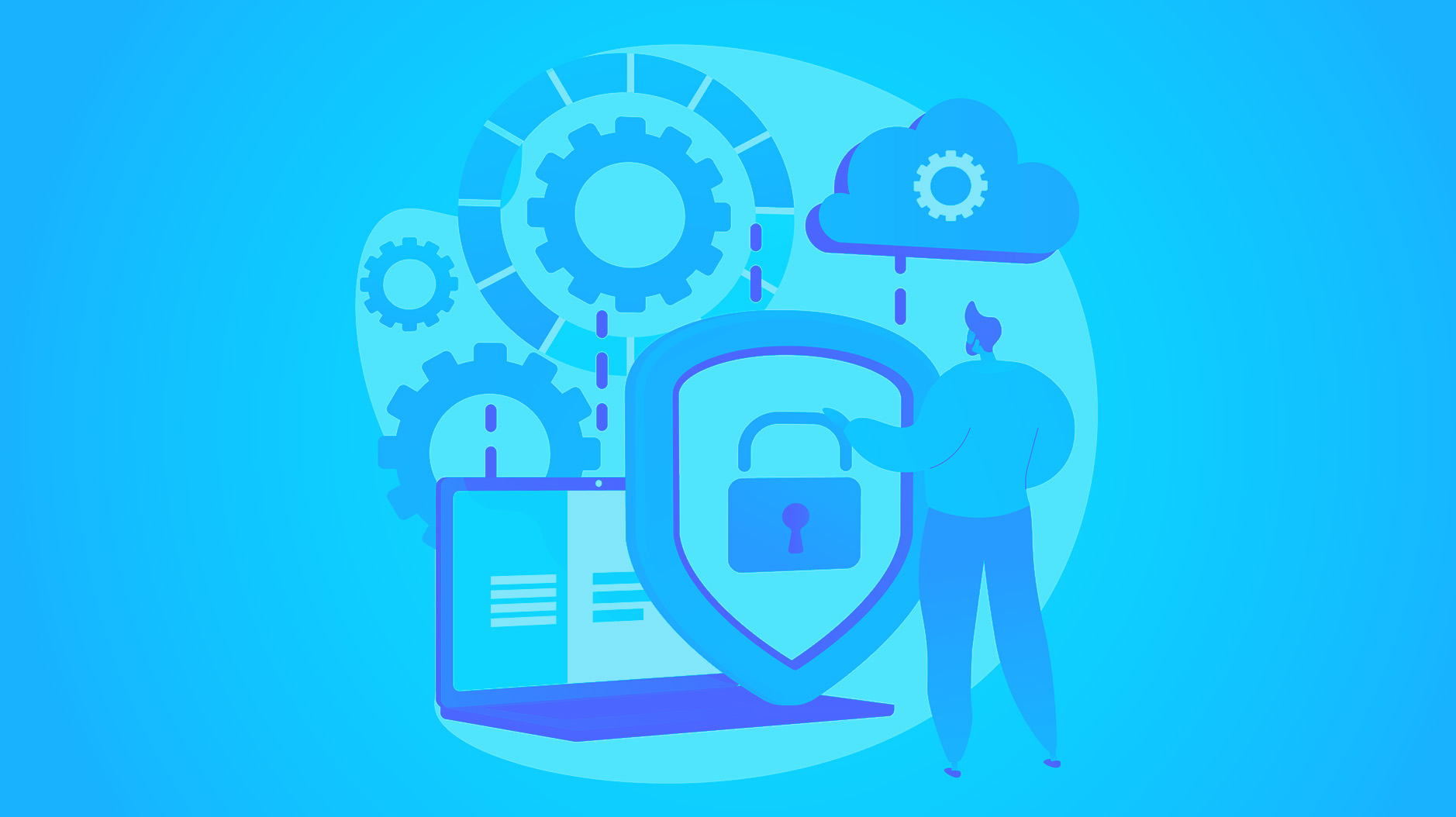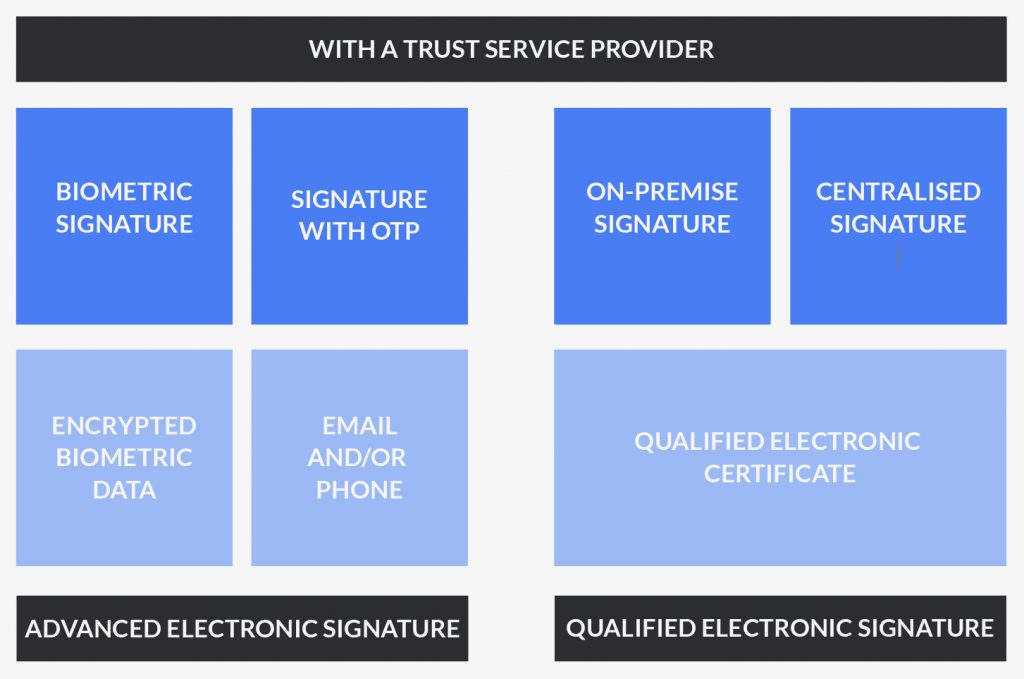
What is a qualified trust service provider?
Regulation (EU) No 910/2014 of the European Parliament and of the Council of 23 July 2014 (commonly known as the eIDAS Regulation) establishes two types of trust service providers: qualified and unqualified.
To understand what exactly a qualified trust service provider is, we must first know what a trust service is and what is meant by qualified.
In the context of qualified electronic trust service providers, a trust service means an electronic service normally provided for remuneration which consists of:
- the creation, verification, and validation of electronic signatures, electronic seals or electronic time stamps, electronic registered delivery services and certificates related to those services, or
- the creation, verification and validation of certificates for website authentication; or
- the preservation of electronic signatures, seals or certificates related to those services.
A trust service is considered qualified when, in addition to the above, it meets the applicable requirements established in the eIDAS Regulation.
Thus, a trust service provider is defined as a natural or a legal person who provides one or more trust services either as a qualified or as a non-qualified trust service provider.
Accordingly, a qualified trust service provider is a trust service provider who provides one or more qualified trust services and is granted the qualified status by the supervisory body.
An example of a trust service would be the issuing of time stamps for electronic signatures.
Legal basis
As mentioned above, the law that regulates the figure of the trust service provider is known as the eIDAS Regulation, or Regulation (EU) No 910/2014 of the European Parliament and of the Council of 23 July 2014 on electronic identification and trust services for electronic transactions in the internal market. This Regulation repeals Directive 1999/93/EC.
On November 11th, 2020, Law 6/2020, regulating certain aspects of electronic trust services, was published in the BOE (the Official State Gazette of Spain). This Law revoked the obsolete Law 59/2003 of December 19th, the Spanish Electronic Signatures Law.
The main objective of this new Law 6/2020 is to regulate certain aspects of electronic trust services and complement Regulation (EU) No 910/2014.
We should note that there have been different laws and regulations over the years that have determined various aspects related to trust and electronic signature services in Spain:
- Royal Decree-Law 14/1999 of September 17th on Electronic Signature | (Repealed)
- Directive 1999/93/CE of December 13th, which established a Community framework for Electronic Signature | (Repealed)
- Law 59/2003 of December 19th, on Electronic Signature | (Repealed)
- Law 6/2020 of November 11th, regulating certain aspects of electronic trust services
- Regulation (EU) No 910/2014 of the European Parliament and of the Council of 23 July 2014 on electronic identification and trust services for electronic transactions (eIDAS Regulation)
Relevant developments
Previously, many referred to the figure of the trusted third party. Law 6/2020 repeals Article 25 of Law 34/2002 (LSSI), which eliminates the concept of trusted third party.
The services offered by this type of provider are subsumed into the types regulated by the eIDAS Regulation, mainly with respect to electronic registered delivery services and the preservation of electronic signatures and electronic seals. With the new laws, we are exclusively talking about qualified and non-qualified trust service providers.
Docuten is a qualified trust service provider
Docuten is currently recognised as a qualified trust service provider. As discussed, the validity of electronic signatures at the legal level is outlined in Regulation (EU) No 910/2014 (eIDAS), as well as in other international legislation. All of Docuten’s solutions for digitally signing documents (such as the qualified electronic signature) are included in the eIDAS Regulation, which provides full legal validity.
Docuten enables you to sign documents with both qualified electronic signatures and advanced electronic signatures, and all the signature types offered are legally compliant and secure.

Types of signatures and use cases
Our platform facilitates streamlined signature flows, enabling clients to sign all kinds of documents quickly, easily, and securely, using any device.
If you want more information about the different types of electronic signatures we offer or the security of our solutions, don’t hesitate to contact us.
